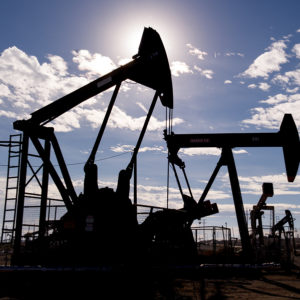Editor’s Note: For another viewpoint, see Counterpoint: Why a Fracking Ban Is Unwise
A fracking phaseout is both wise and necessary. We must stop burning fossil fuels as quickly as possible.
The Intergovernmental Panel on Climate Change says that to stop global temperatures from rising more than 1.5 degrees Centigrade above pre-industrial levels — a point at which we will start to face widespread catastrophic harm — we need to cut greenhouse gas pollution immediately and drastically, by about 50 percent by 2030 and to zero by around 2050.
Although China produces the most greenhouse gas pollution annually, the United States is responsible for the most historically. So it’s only fair that we cut our pollution even faster than the rest of the world.
Fracking is a major contributor to global warming, and not just because burning the gas puts carbon pollution in the atmosphere. Huge amounts of methane are released during oil and gas fracking and transport. Methane is much more potent than carbon dioxide in the short term, causing 84 times as much warming over 20 years.
Accidental methane leaks and intentional venting by oil and gas companies are more prevalent than we thought. For a few years now, experts have been arguing about whether fracked gas is as bad as coal or even worse. We don’t need to settle that debate to know that fracking is a major contributor to global warming, and it needs to stop.
Fracking also causes other damage.
It pollutes nearby communities, creating large amounts of toxic waste and frequently contaminating drinking water. The documentary “Gasland” famously showed a homeowner igniting the water flowing from his kitchen faucet. Oil is fracked too, and air pollution from oil-powered vehicles is a major cause of illness and fatalities in the United States and around the world.
These harms from global warming and local pollution fall hardest on people who are already the most vulnerable and have the least ability to protect themselves. It’s no accident that there’s no fracking in wealthy neighborhoods. If the rich and powerful were the ones harmed, we’d have stopped fracking years ago.
The fracking industry is rife with fraud, and it isn’t always profitable. So why do companies keep fracking?
A private equity firm can lure investors with rosy forecasts of the production potential of a piece of land, destroy communities and endanger humanity’s natural habitat with a business that never makes a profit, but walk away millions of dollars richer when the scheme eventually crashes.
All this is to say we should end fracking quickly — but not carelessly. A few guardrails should guide the fracking phaseout.
First, we should protect people who work in the industry, as well as the communities that depend on tax revenue and secondary economic activity from it. Solutions for workers should be developed in cooperation with workers themselves, and their unions where relevant. We can afford to be generous and we should — by guaranteeing job training, employment, salaries and benefits, pensions or some combination of these things. No one should be punished because they work in an industry that must come to an end to make the world safe.
As for local tax revenue and economic activity, support for workers will solve some of the problem. But communities can benefit from a range of programs too, from economic development assistance to the equivalent of federal insurance for state and local taxes.
Second, we must ensure that struggling families who need energy to power their cars and homes aren’t hit by higher prices. We can phase out fracking without raising energy prices. Cheaper renewables are rapidly replacing fossil fuels on electric grids across the country, and we can lower prices and reduce energy demand through efficiency improvements and other measures.
We should support policies that accelerate improvements in efficiency, energy storage and renewables.
These efforts reduce demand for fossil fuels and lower the cost of electricity while cleaning up our air and water — all great things to do even if we weren’t facing a climate emergency. At the same time, we can enact tax credits or other measures to ensure that low-income families and those living on fixed incomes are protected in case prices increase temporarily.
End fracking? Absolutely yes.

